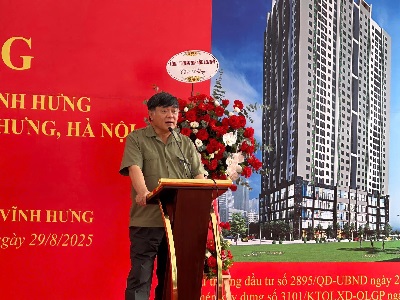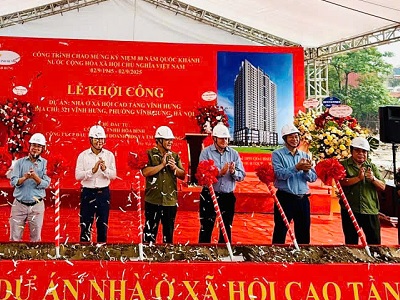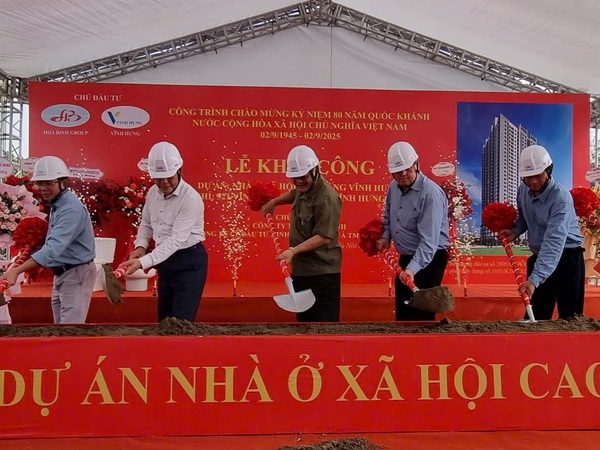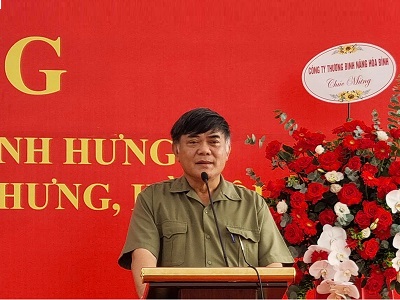Đăng nhập
-
 29/08/2025 Đại gia “Đường bia” khởi công dự án nhà ở xã hội: Mạ vàng vòi chậu rửa, giá dự kiến 22–27 triệu/m²
29/08/2025 Đại gia “Đường bia” khởi công dự án nhà ở xã hội: Mạ vàng vòi chậu rửa, giá dự kiến 22–27 triệu/m² -
 29/08/2025 Khởi công gần 700 căn nhà ở xã hội tại phường Vĩnh Hưng, Hà Nội
29/08/2025 Khởi công gần 700 căn nhà ở xã hội tại phường Vĩnh Hưng, Hà Nội -
 29/08/2025 Đại gia Đường "bia" khởi công dự án nhà ở xã hội ở Vĩnh Hưng có 3 tầng hầm, thiết bị vệ sinh dát vàng
29/08/2025 Đại gia Đường "bia" khởi công dự án nhà ở xã hội ở Vĩnh Hưng có 3 tầng hầm, thiết bị vệ sinh dát vàng -
 29/08/2025 Hà Nội: Khởi công Dự án Nhà ở xã hội cao tầng Vĩnh Hưng phục vụ người thu nhập thấp
29/08/2025 Hà Nội: Khởi công Dự án Nhà ở xã hội cao tầng Vĩnh Hưng phục vụ người thu nhập thấp -
 29/07/2025 Cầu cạn công nghệ PRC V+ lần đầu xuất hiện tại Việt Nam: Đột phá về xây dựng hạ tầng giao thông
29/07/2025 Cầu cạn công nghệ PRC V+ lần đầu xuất hiện tại Việt Nam: Đột phá về xây dựng hạ tầng giao thông






